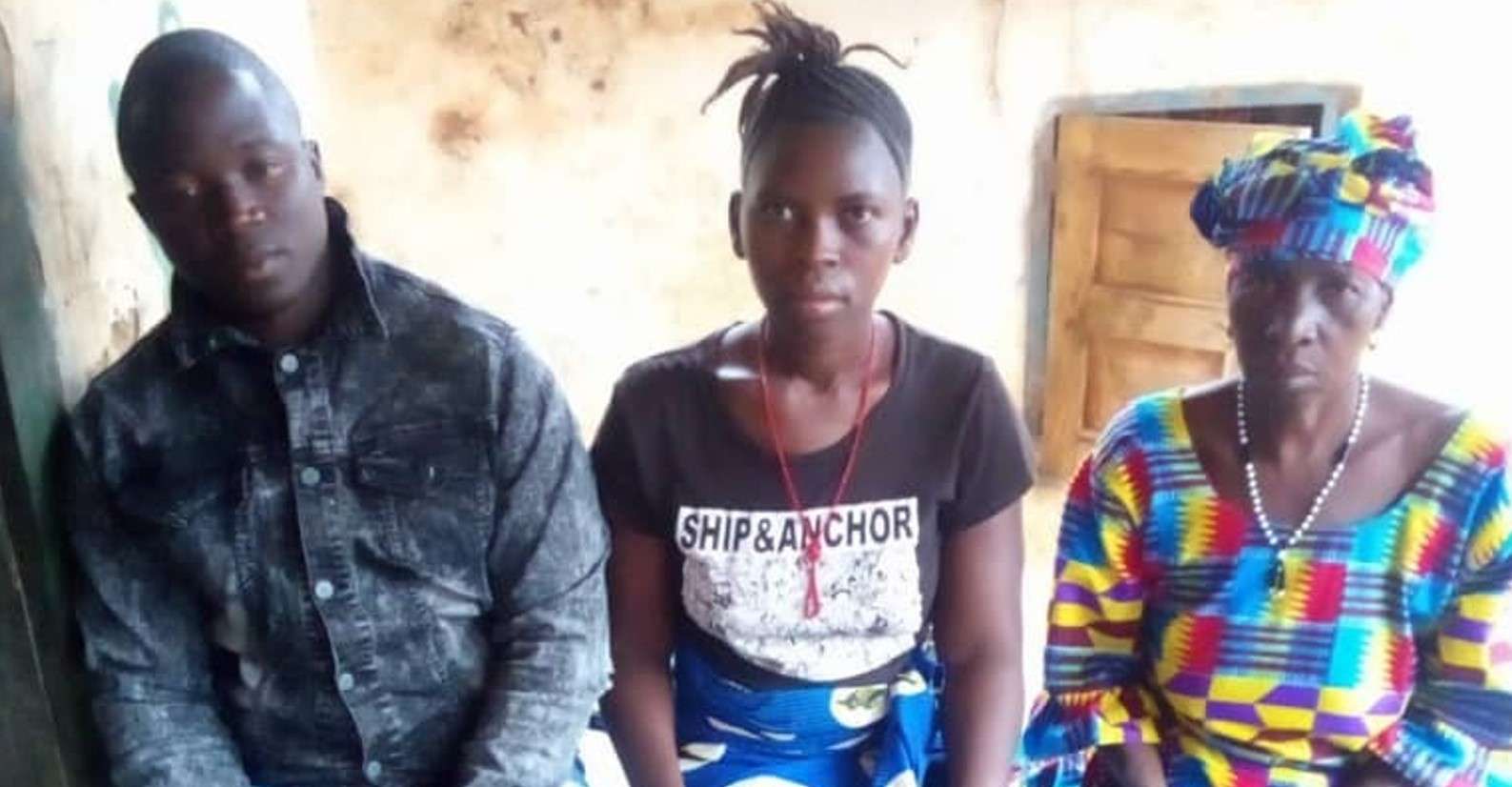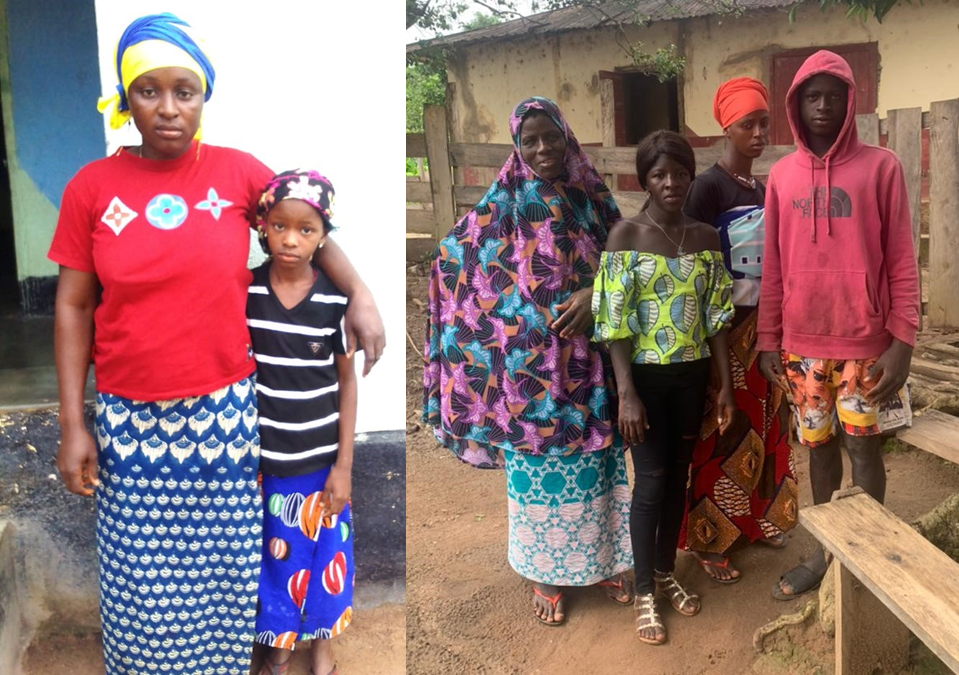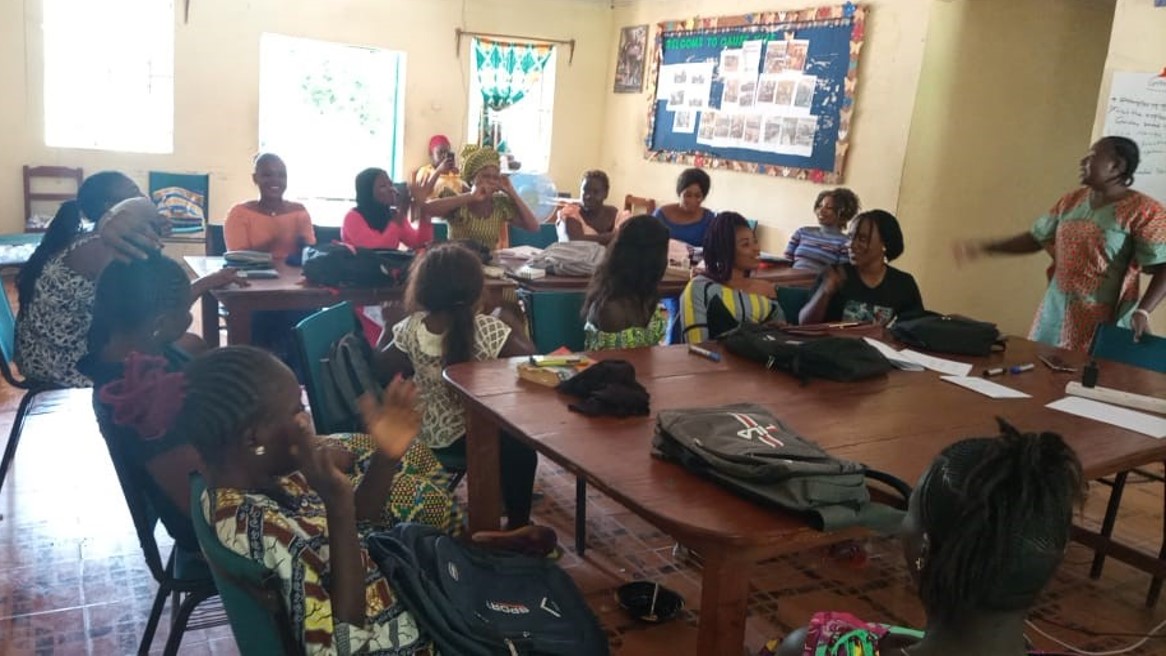
“There is dignity in disability.”
CAUSE Canada
Florence*, a woman living with blindness in the Northern Province of Sierra Leone, was told that she had no value and that her only means of survival would be begging.
“As a young woman, being blind is like to be forsaken,” she reported. “In my community, people were treating me like trash.”
Women and girls living with disabilities experience intersecting discrimination in Sierra Leone. In 2015, the country ranked 151 out of 159 on the UNDP’s Gender Inequality Index. A 2020 UNFPA report found that 62% of women ages 15-49 had experienced sexual or physical violence, and in the Koinadugu and Falaba districts, 43.7% of girls are married before 18 and 98.5% have experienced female genital mutilation.

Women and girls living with disabilities experience a double disadvantage. Common beliefs about the causes of disability include demonic possession, punishment from a deity, or blaming the misdeeds of parents and/or ancestors. People with a disability are often considered a source of family shame and “not quite human” (Rohwerder, 2018). The result is complete disempowerment of people with disabilities, leaving them vulnerable to physical and sexual violence, parental abandonment and a lack of access to education. A 2015 census revealed that 63% of persons with disabilities above the age of 3 had never gone to school. While 24.1% of boys living with disabilities had attended formal schooling, only 13.2% of women and girls had this opportunity.
Supported by FIT, Cause Canada Sierra Leone Partnership tested an innovative solution aimed at addressing the discrimination and stigma faced by women and girls living with disabilities. As part of the test, 14 women were appointed as Champions in the Koinadugu and Falaba districts of Sierra Leone. Half were women living with disabilities and half were women living without disabilities. The Champions were trained and empowered with knowledge on the rights, needs and risks faced by women and girls living with disabilities, as well as methods for raising awareness, building capacity and leading change. The Champions supported out-of-school girls living with disabilities, along with their families and communities, to identify and plan specific strategies that would help improve access to rights.
At the beginning of the testing period, Florence was chosen to participate as a Champion. She shared the following:
“The implementation of this project…has not only changed the way my community has been looking at me and thinking about me but has added great value in me. Working with my colleagues, and women and girls living with disabilities, is like a dream come true.”

The mid-term impacts of the test are promising. Thus far, the innovation has prevented two early marriages, while 55% (30) of the participating out-of-school girls with disabilities have been enrolled to school. An additional 12 families are working on plans to get their girls enrolled. Most noteworthy, however, is that the enrollment rate has been considerably higher among the families supported by Champions living with disabilities compared with the Champions living without disabilities(70% vs. 39%). Furthermore, Champions living with disabilities show a higher motivation to involve and influence other women living with and without disabilities. Inspired by their own stories and experiences, Champions living with disabilities have created and implemented their own strategies to involve more women and girls living with disabilities, empower them and guide them to act as leaders in the community. For example, through door to door visits, and giving girls a say in the selection of training venues.
In coordination with key community leaders, the Champions also conducted a community engagement event to present the intervention and to start raising awareness on the rights and needs of women and girls living with disabilities. Champions invited all community members to engage with the working group, resulting in 308 community members (140 women and 168 men) committing to support their community’s action plan.
This shift in community support and commitment is abundantly clear to Florence.
“The work we have done so far in raising awareness on the rights of women and girls living with disabilities is going a long way in changing the narrative in my community. I am now confident that all is not lost and that there is dignity in disability. The…community engagement meeting has put women and girls living with disabilities in a respectful position.”
*Name has been changed to protect the participant’s identity

